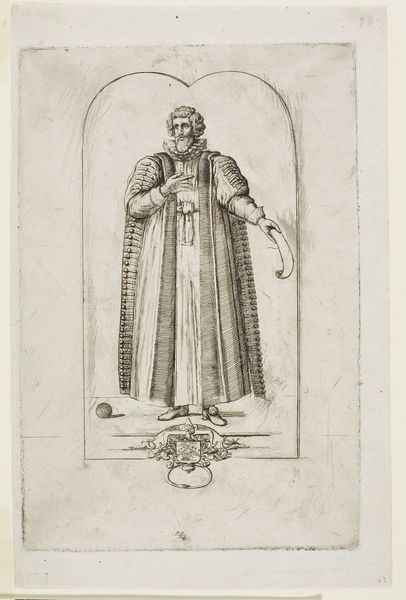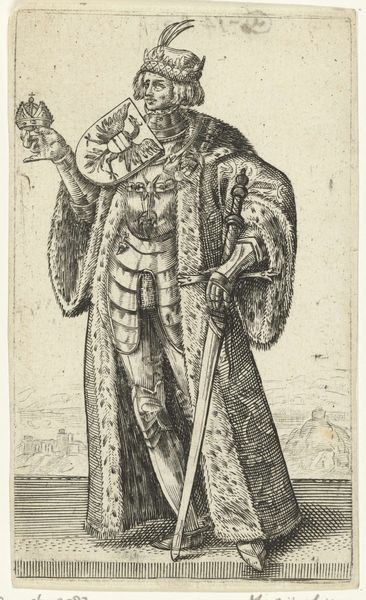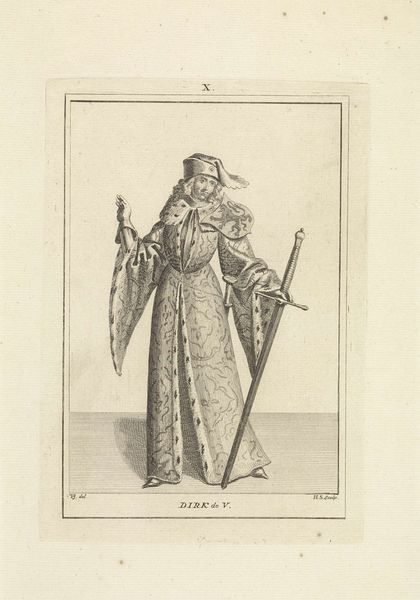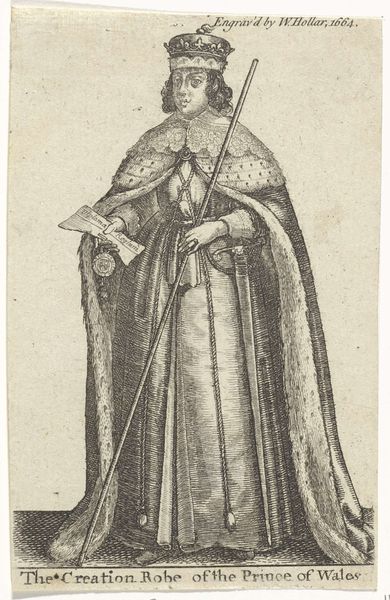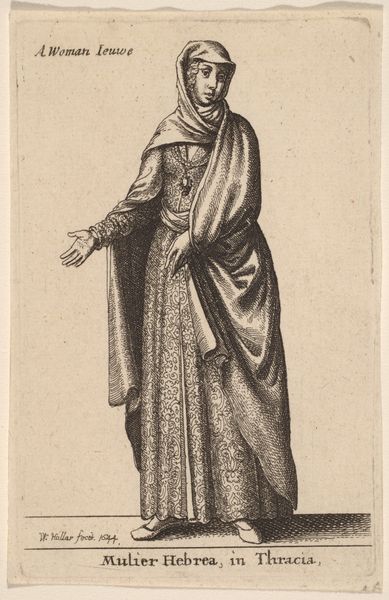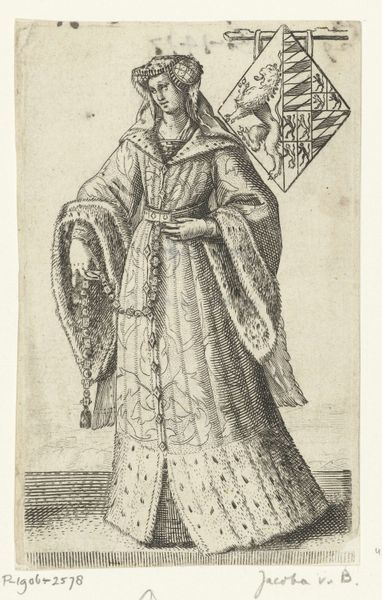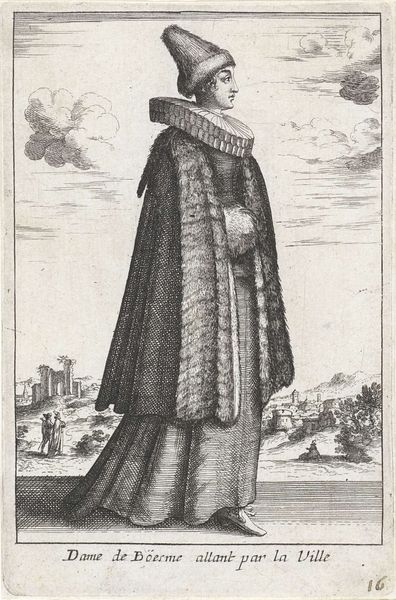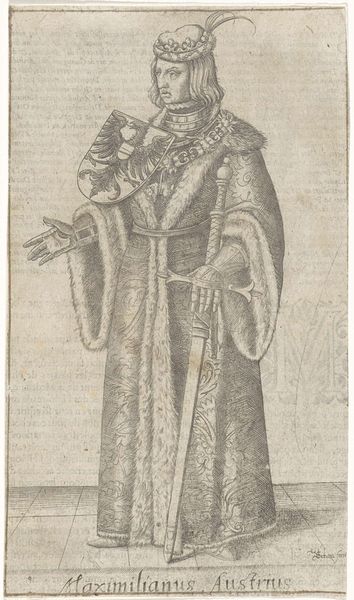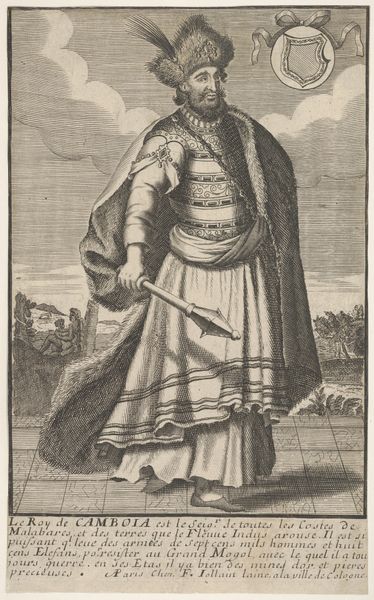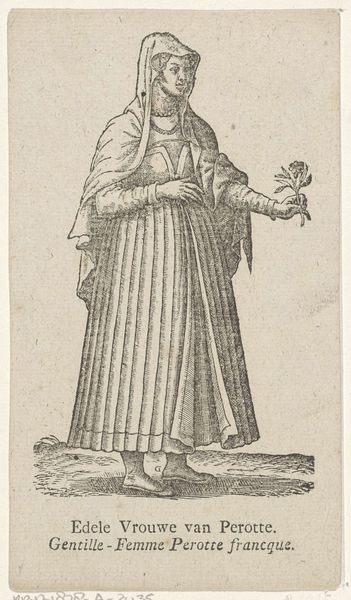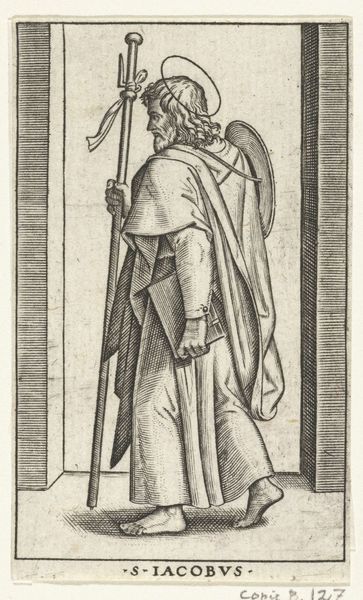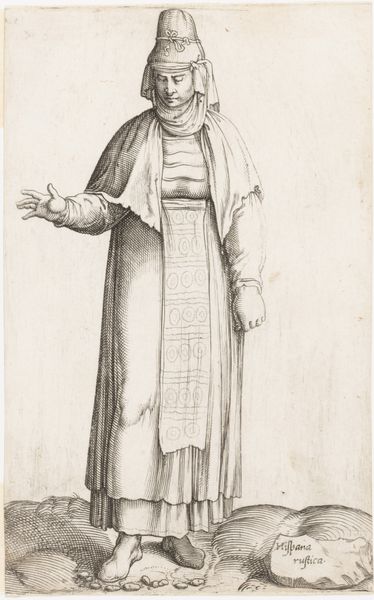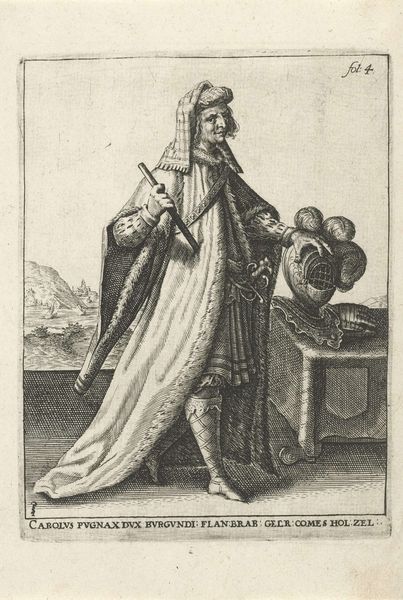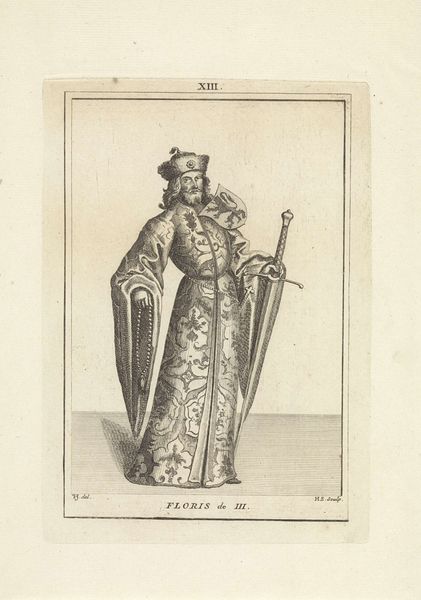
drawing, print, etching, paper
#
portrait
#
drawing
#
narrative-art
# print
#
etching
#
paper
#
france
#
history-painting
#
academic-art
Dimensions: 183 × 90 mm (image); 192 × 101 mm (sheet)
Copyright: Public Domain
Editor: So, this is Charles Meryon’s 1861 etching, “Portrait of François Viète," currently at the Art Institute of Chicago. The detail achieved with etching on paper is striking! The figure appears very regal, almost imposing. How would you interpret this piece? Curator: The work’s meticulous detail hints at a complex process. The material reality of etching, the labor involved in creating such precise lines, underscores the value placed on accurate representation, which served a specific societal need for portraying status. Do you notice anything about the man's clothing? Editor: The gown seems significant, decorated with many buttons, and what’s in his hand? A rolled-up document of some kind. Curator: Exactly! The production of that clothing signals a sophisticated textile industry and trade networks. That rolled document, inscribed with “A+B+C”, points to the burgeoning scientific field, transforming the traditional production of knowledge. It emphasizes that knowledge is starting to be more systematized, much like craft guilds developing standardized production techniques. Editor: It’s interesting how you relate materials to social status, power, and systems of knowledge production. I was only thinking about it as a portrait, and about artistic skill. Curator: Consider how the consumption of such an image also played a role. This was a commodity circulated within a specific social sphere, reaffirming certain class structures and ideologies. How do you see that reflected in the material production of art today? Editor: I guess I hadn't really thought about how art materials and processes can reflect broader economic and historical currents. Food for thought. Thanks! Curator: It highlights how our understanding of the present is inseparable from the study of materials and how art is actually made.
Comments
No comments
Be the first to comment and join the conversation on the ultimate creative platform.
